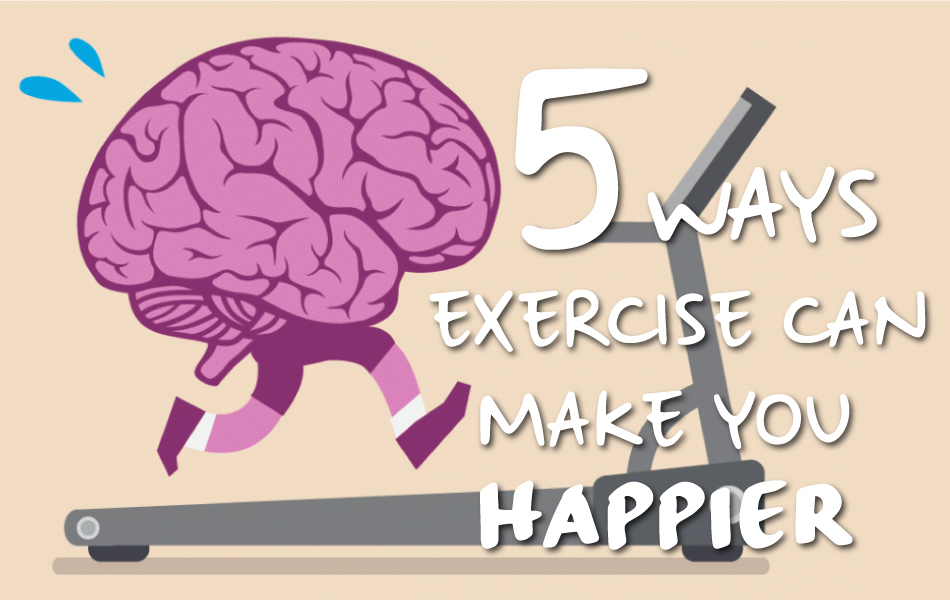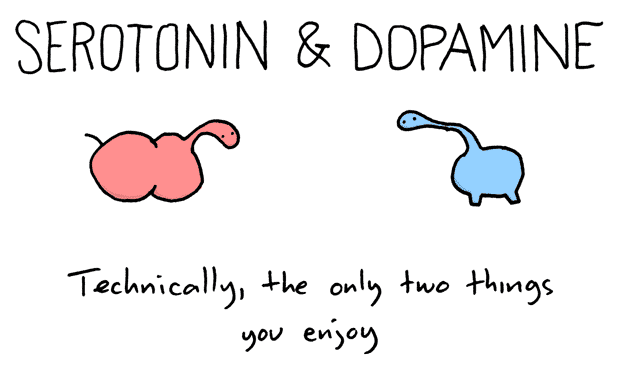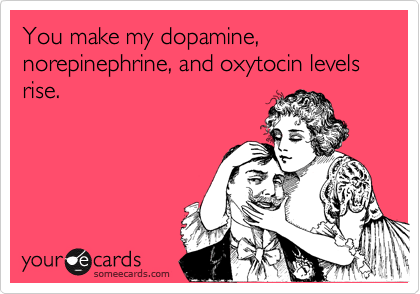Total Therapy Blog

Exercise and Mental Health
Mental health is a complicated and at times delicate issue with many different origins and triggers. Our body’s response to exercise is just as complicated, overlapping many physiological pathways that are responsible for perception of emotion. It’s no surprise then that exercise influences our mental health state.
But HOW is exercise good for mental health?
Endorsing endorphins…
Exercise is a stressor of the body that stimulates the central nervous system, or CNS. This in turn increases the release of endorphins, a word that almost sounds like ‘dolphins’ so we know they’re something happy and fun. Endorphins are a class of neuropeptides. We like them because they suppress our perception of pain and improve our mood— with enough of these guys in your bloodstream, you can even achieve a natural euphoric state such as a runner’s high.
Serotonin? More like sero-ballin’!
 The CNS also releases more serotonin into the bloodstream with exercise. Serotonin is a neurotransmitter that, upon binding with its receptor, is associated with happiness and well-being. We definitely like these too! Studies have also shown an increase in presence of serotonin receptors with regular exercise, which increases your body’s ability to use the happy-inducing neurotransmitter more efficiently. In addition to improving mood, serotonin also positively affects GI tract function, memory and cognitive functions, and cardiovascular health. In turn, stabilizing these areas of physical/physiological health can greatly improve one’s mental status.
The CNS also releases more serotonin into the bloodstream with exercise. Serotonin is a neurotransmitter that, upon binding with its receptor, is associated with happiness and well-being. We definitely like these too! Studies have also shown an increase in presence of serotonin receptors with regular exercise, which increases your body’s ability to use the happy-inducing neurotransmitter more efficiently. In addition to improving mood, serotonin also positively affects GI tract function, memory and cognitive functions, and cardiovascular health. In turn, stabilizing these areas of physical/physiological health can greatly improve one’s mental status.
Don’t hate, regulate.
Regular, scheduled exercise helps smooth out and regulate the release of melatonin, cortisol, and norephinephrine in the part of the brain called the hypothalamus. This improves our sleeping patterns— and we all know how strongly sleep can affect mood! It also helps regulate food intake by balancing the hormones responsible for suppressing or increasing appetite.
Exercise trains your cardiovascular system to become stronger, more efficient, and better regulated. The result is a lower baseline heart rate with an overall improvement of oxygen delivery to your muscles, GI tract, and brain. This helps with calmness and relaxation.
Love, love, love: Love is (almost) all you need!
 Exercise also has shown to increase the proteins necessary for oxytocin production– yup, the same hormone that produces those warm fuzzy feelings of love. This is pretty cool because not even Robin Williams’ Genie could create love, but exercise can (albeit indirectly). You are more powerful than the blue guy with self-proclaimed phenomenal cosmic powers (and an iiiiitty bitty living space)! Oxytocin also indirectly lowers cortisol, a.k.a. the stress hormone.
Exercise also has shown to increase the proteins necessary for oxytocin production– yup, the same hormone that produces those warm fuzzy feelings of love. This is pretty cool because not even Robin Williams’ Genie could create love, but exercise can (albeit indirectly). You are more powerful than the blue guy with self-proclaimed phenomenal cosmic powers (and an iiiiitty bitty living space)! Oxytocin also indirectly lowers cortisol, a.k.a. the stress hormone.
A more serious closing note.
Mental health is dependent on a variety of different things in different combinations. It’s OK to not be OK, but you do not have to be alone. Connectedness equals resilience. It is just as important to connect with yourself as it is to connect with the good, supportive folks that are here for you in times of need. You can use exercise not just to better your physical health but to start shaping your future, regain control, regulate your you-time, build self-esteem, and along the way find even more positive reasons to continue exercising. However, please do not hesitate to talk to a professional in the face of serious distress. Here to help BC is just one of many tools available province-wide for free, confidential, non-judgemental, immediate help.
Building muscle, building wellness,








Follow Us!
& Stay Up To Date
BLOG